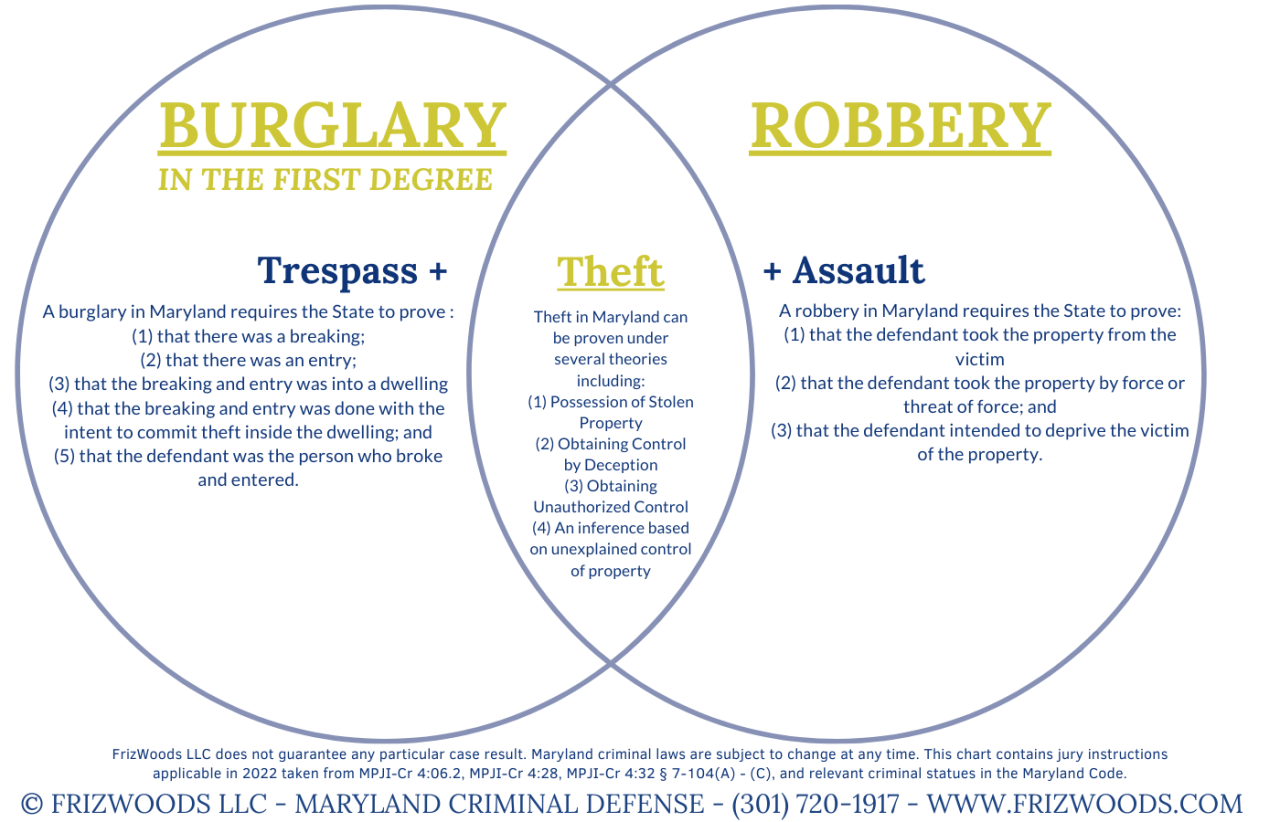The primary difference between larceny and burglary is that burglary involves unlawful entry into a structure, while larceny does not. This distinction is crucial in understanding the legal definitions and consequences of these two crimes.
Larceny is the unlawful taking and carrying away of personal property from another person. It can occur in any location, including public or private property. Burglary, on the other hand, is the unlawful entry into a structure with the intent to commit a crime, typically theft.
The structure can be a house, a business, or any other building.
The Primary Difference Between Larceny and Burglary: The Primary Difference Between Larceny And Burglary Is That

In the realm of criminal law, larceny and burglary stand as distinct offenses with unique elements and legal implications. This article delves into the fundamental differences between these two crimes, exploring their definitions, distinguishing characteristics, legal consequences, and preventive measures.
Definition of Larceny
Larceny, commonly known as theft, involves the unlawful taking and carrying away of personal property with the intent to permanently deprive the rightful owner of its possession. This act can be committed in various forms, including shoplifting, pickpocketing, and robbery.
Definition of Burglary
Burglary, on the other hand, encompasses the unlawful entry into a building or structure with the intent to commit a crime inside. This crime is often associated with theft, but it can also involve other offenses such as assault, battery, or vandalism.
Key Differences Between Larceny and Burglary
The primary distinction between larceny and burglary lies in the element of unlawful entry. Larceny involves the unlawful taking of property, while burglary involves the unlawful entry into a building or structure with the intent to commit a crime.
Other distinguishing factors include the intent and the value of the property involved. In larceny, the intent is to permanently deprive the owner of the property, whereas in burglary, the intent may be broader, including the commission of other crimes within the building or structure.
Additionally, the value of the property involved can affect the severity of the charges in some jurisdictions.
Legal Consequences of Larceny and Burglary
The legal consequences of larceny and burglary vary depending on the jurisdiction and the specific circumstances of the crime. In general, larceny is considered a less serious offense than burglary, as it does not involve the unlawful entry into a building or structure.
Penalties for larceny typically range from fines to imprisonment, depending on the value of the property stolen. Burglary, on the other hand, is often considered a more serious offense and may carry harsher penalties, including longer prison sentences.
Prevention of Larceny and Burglary, The primary difference between larceny and burglary is that
Taking proactive measures can help prevent both larceny and burglary. These measures include:
- Securing valuables in a safe place
- Installing security systems
- Being aware of your surroundings
- Reporting suspicious activity to the authorities
Security measures, such as alarms and surveillance cameras, can act as deterrents to potential criminals and make it more difficult for them to commit these crimes.
User Queries
What is the main difference between larceny and burglary?
The main difference is that burglary involves unlawful entry into a structure, while larceny does not.
What are some examples of larceny?
Examples of larceny include shoplifting, pickpocketing, and stealing a car.
What are some examples of burglary?
Examples of burglary include breaking into a house, breaking into a car, and breaking into a business.
What are the legal penalties for larceny and burglary?
The legal penalties for larceny and burglary vary depending on the jurisdiction and the severity of the offense. However, burglary is generally considered a more serious crime than larceny.


